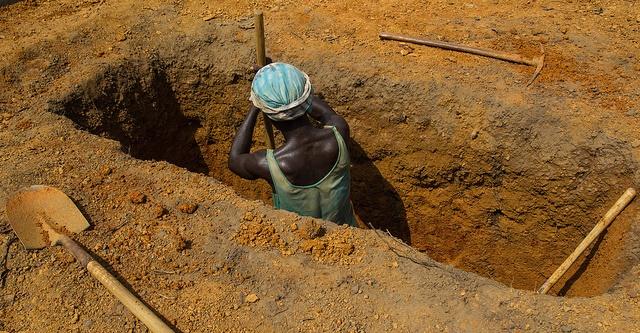The World Health Organization (WHO) today reported three Ebola cases in Guinea, one of which is new, while a UK nurse is showing promising signs of recovery after nearly dying from meningitis caused by a relapse—not a re-infection—of the virus, hospital officials said.
Sierra Leone, meanwhile, has now gone 5 weeks with no new cases, the WHO said in its weekly update.
No registered contacts in 2 cases
One of the new patients in Guinea is in the capital, Conakry, while the other two are in Forecariah district, where some of the most recent cases have been detected. The case in Conakry and one of the other cases were reported by the media on Oct 16.
As noted then, the Conakry patient, a 21-year-old man, is not part of a known transmission chain. And genomic analyses suggest he was not infected with the virus strain responsible for the most recent cases in Conakry and Forecariah, the WHO said today.
The WHO also reported that the newly reported case, which was detected only during post-mortem testing, also was not a known contact of any previously reported case. "Therefore there remains a near-term risk of further cases among both registered and untraced contacts," the agency said.
The fatal case involved a 35-year-old woman, and genetic analysis showed she is part of the same chain of transmission as the four cases reported in Forecariah in the WHO's Sep 30 update. Guinea had gone more than 2 weeks between those cases and the two reported last week.
The third case is the 3-month-old child of the dead woman. Officials are monitoring 246 contacts in Guinea, 70 of whom are considered high risk. The WHO said an additional 253 contacts identified in the past 6 weeks remain untraced.
Sierra Leone has now gone 5 weeks without a case, and all contacts linked to its two most recently active transmission chains have completed 21 days of follow-up. As well, the last patient to receive treatment was confirmed free of Ebola virus after a second consecutive test on Sep 25 was negative. Two high-risk contacts, however—one in Bombali and one in Kambia—remain untraced, and officials are still trying to locate them.
The country will be declared free of the disease on Nov 7 if no further cases are reported.
Signs of improvement after meningitis
In related news, Pauline Cafferkey, the Scottish nurse who contracted Ebola last December in West Africa before recovering in late January, came close to death from meningitis caused by the virus, her doctors said today. Her condition, though, has now improved enough for her to converse, use an iPad, and sit up in bed, The Guardian reported today.
BBC News reported that Michael Jacobs, MD, who is treating Cafferkey at the Royal Free Hospital in London, said, "Pauline has become unwell by meningitis caused by the Ebola virus. But to be very clear about this, she hasn't been re-infected with the Ebola virus.
"This is the original Ebola virus that she had many months ago, which has been lying inside the brain, replicating at a very low level probably, and has now re-emerged to cause this clinical illness of meningitis. And this is obviously a serious thing."
Neurologic complications due to meningitis caused life-threatening disease while Cafferkey was being treated at the specialist isolation unit at Royal Free, Jacobs said. "I think she has a long recovery ahead of her and will be with us for quite a while still."
See also:
Oct 21 WHO update
Oct 16 CIDRAP News story "Guinea reports two more Ebola cases; review sheds light on CNS complications"
Oct 21 Guardian story
Oct 21 BBC News report


















